
Robert George Seale is an American political activist and author. Seale is widely known for co-founding the Black Panther Party with fellow activist Huey P. Newton. Founded as the "Black Panther Party for Self-Defense", the Party's main practice was monitoring police activities and challenging police brutality in Black communities, first in Oakland, California, and later in cities throughout the United States.
Preston is a provincial electoral district in the Halifax Regional Municipality in Nova Scotia, Canada. It has existed from 1993 to 2013 and since 2021 and elects one member of the Nova Scotia House of Assembly.
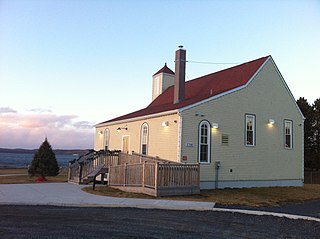
Africville was a small community of predominantly African Nova Scotians located in Halifax, Nova Scotia, Canada. It developed on the southern shore of Bedford Basin and existed from the early 1800s to the 1960s. From 1970 to the present, a protest has occupied space on the grounds. The government has recognized it as a commemorative site and established a museum here. The community has become an important symbol of Black Canadian identity, as an example of the "urban renewal" trend of the 1960s that razed similarly racialized neighbourhoods across Canada, and the struggle against racism.
Fernwood Publishing is an independent Canadian publisher that publishes non-fiction books dealing with social justice and issues of social, political and economic importance.
The Red Guard Party was a Chinese-American youth organization formed in February 1969. It was named after the Red Guards of the Chinese Cultural Revolution.

The history of Nova Scotia covers a period from thousands of years ago to the present day. Prior to European colonization, the lands encompassing present-day Nova Scotia were inhabited by the Mi'kmaq people. During the first 150 years of European settlement, the region was claimed by France and a colony formed, primarily made up of Catholic Acadians and Mi'kmaq. This time period involved six wars in which the Mi'kmaq along with the French and some Acadians resisted the British invasion of the region: the French and Indian Wars, Father Rale's War and Father Le Loutre's War. During Father Le Loutre's War, the capital was moved from Annapolis Royal, Nova Scotia, to the newly established Halifax, Nova Scotia (1749). The warfare ended with the Burying the Hatchet ceremony (1761). After the colonial wars, New England Planters and Foreign Protestants immigrated to Nova Scotia. After the American Revolution, Loyalists immigrated to the colony. During the nineteenth century, Nova Scotia became self-governing in 1848 and joined the Canadian Confederation in 1867.
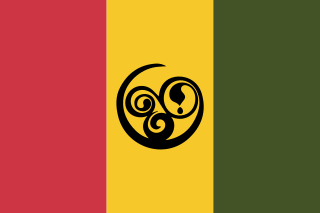
Black Nova Scotians are Black Canadians whose ancestors primarily date back to the Colonial United States as slaves or freemen, later arriving in Nova Scotia, Canada, during the 18th and early 19th centuries. As of the 2021 Census of Canada, 28,220 Black people live in Nova Scotia, most in Halifax. Since the 1950s, numerous Black Nova Scotians have migrated to Toronto for its larger range of opportunities. The first recorded free African person in Nova Scotia, Mathieu da Costa, a Mikmaq interpreter, was recorded among the founders of Port Royal in 1604. West Africans escaped slavery by coming to Nova Scotia in early British and French Colonies in the 17th and 18th centuries. Many came as enslaved people, primarily from the French West Indies to Nova Scotia during the founding of Louisbourg. The second major migration of people to Nova Scotia happened following the American Revolution, when the British evacuated thousands of slaves who had fled to their lines during the war. They were given freedom by the Crown if they joined British lines, and some 3,000 African Americans were resettled in Nova Scotia after the war, where they were known as Black Loyalists. There was also the forced migration of the Jamaican Maroons in 1796, although the British supported the desire of a third of the Loyalists and nearly all of the Maroons to establish Freetown in Sierra Leone four years later, where they formed the Sierra Leone Creole ethnic identity.

The Book of Negroes is a document created by Brigadier General Samuel Birch, under the direction of Sir Guy Carleton, that records names and descriptions of 3,000 Black Loyalists, enslaved Africans who escaped to the British lines during the American Revolution and were evacuated to points in Nova Scotia as free people of colour.
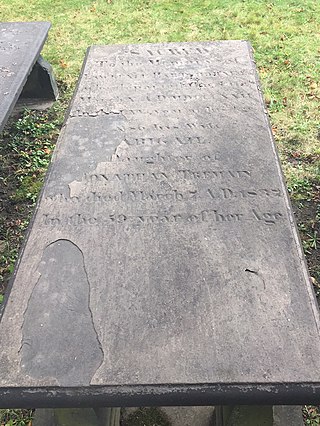
The Nova Scotian Settlers, or Sierra Leone Settlers, were African Americans who founded the settlement of Freetown, Sierra Leone and the Colony of Sierra Leone, on March 11, 1792. The majority of these black American immigrants were among 3,000 African Americans, mostly former slaves, who had sought freedom and refuge with the British during the American Revolutionary War, leaving rebel masters. They became known as the Black Loyalists. The Nova Scotian Settlers were jointly led by African American Thomas Peters, a former soldier, and English abolitionist John Clarkson. For most of the 19th century, the Settlers resided in Settler Town and remained a distinct ethnic group within the Freetown territory, tending to marry among themselves and with Europeans in the colony.
The Ten-Point Program or The Black Panther Party for Self-Defense Ten-Point Platform and Program is a party platform written by Huey P. Newton and Bobby Seale in 1966 for the Black Panther Party.

The Black Panther Party was a Marxist–Leninist and black power political organization founded by college students Bobby Seale and Huey P. Newton in October 1966 in Oakland, California. The party was active in the United States between 1966 and 1982, with chapters in many major American cities, including San Francisco, New York City, Chicago, Los Angeles, Seattle, and Philadelphia. They were also active in many prisons and had international chapters in the United Kingdom and Algeria. Upon its inception, the party's core practice was its open carry patrols ("copwatching") designed to challenge the excessive force and misconduct of the Oakland Police Department. From 1969 onward, the party created social programs, including the Free Breakfast for Children Programs, education programs, and community health clinics. The Black Panther Party advocated for class struggle, claiming to represent the proletarian vanguard.
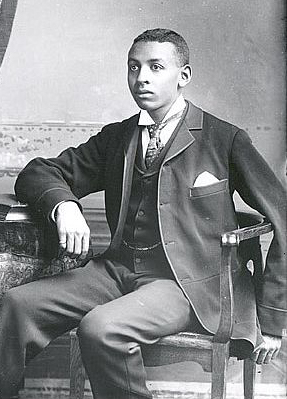
James Robinson Johnston was a Canadian lawyer and community leader.
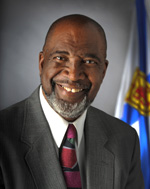
Burnley Allan "Rocky" Jones was an African-Nova Scotian and an internationally known political activist in the areas of human rights, race and poverty. He came to prominence first as a member of the Student Union for Peace Action (SUPA) during the 1960s and then as a civil rights activist, community organizer, educator, and lawyer.
The Black Cultural Centre for Nova Scotia is located in Cherry Brook, Nova Scotia, in the Halifax Regional Municipality. The centre is a museum and a library resource centre that focuses on the history and culture of African Nova Scotians. The organization of the Black Cultural Society was incorporated as a charitable organization in 1977 and the centre opened its doors in 1983, with a goal to educate and inspire and to protect, preserve and promote Black culture in Nova Scotia. The centre is located on Trunk 7 at 1149 Main Street.

The Africville Apology was a formal pronouncement delivered on 24 February 2010 by the City of Halifax, Nova Scotia for the eviction and eventual destruction of Africville, a Black Nova Scotian community.

New Horizons Baptist Church is a Baptist church in Halifax, Nova Scotia that was established by Black Refugees in 1832. When the chapel was completed, black citizens of Halifax were reported to be proud because it was evidence that former slaves could establish their own institutions in Nova Scotia. Under the direction of Richard Preston, the church laid the foundation for social action to address the plight of Black Nova Scotians. It is affiliated with the Canadian Baptists of Atlantic Canada.

William Pearly Oliver worked at the Cornwallis Street Baptist Church for twenty-five years (1937–1962) and was instrumental in developing the four leading organizations to support Black Nova Scotians in the 20th century: Nova Scotia Association for the Advancement of Colored People (1945), the Nova Scotia Human Rights Commission (1967), the Black United Front (1969) and the Black Cultural Centre for Nova Scotia (1983). He was instrumental in supporting the case of Viola Desmond. Oliver was awarded the Order of Canada in 1984.

Assata's Daughters is an American black power organization of young radical African-American women and girls in Chicago, which operates through a Black, queer, feminist lens, that focuses on political education, organizing, and revolutionary services. The group is dedicated to radical liberatory activism in the tradition of Assata Shakur, a former member of the Black Liberation Army (BLA). The organization is often criticised for this connection, as Assata Shakur was convicted of first-degree murder, armed robbery, and other crimes in 1977 in the murder of a New Jersey State Trooper.

Joan Carol Jones was a Canadian businesswoman and civil rights activist who was born in the United States and raised in Ontario, Canada. She was married to Black Nova Scotian and internationally known political activist Rocky Jones, whom she influenced to become more active in the issues of black activism causes espoused by Malcolm X and writer James Baldwin, during the black radicalism period of the 1960s. Together they were among the founders of Kwacha House, an interracial youth club in Halifax and were later instrumental in bringing Stokely Carmichael and the Black Panther Party to Halifax. They adopted the radicalized language of the Panthers and organized with Carmichael's help the Black United Front, taking on issues of police brutality, employment and housing discrimination in the black community.
Donald D. Skeir was a Canadian pastor, community leader, and educator in the African Nova Scotian community.











